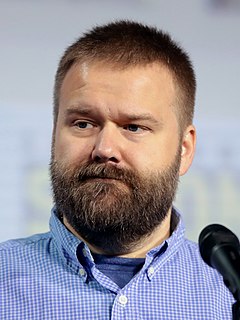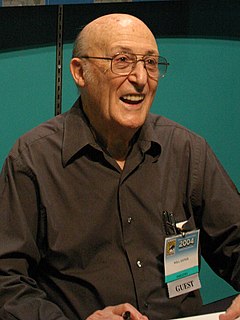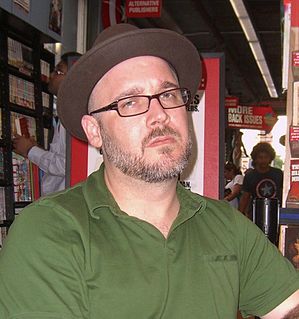A Quote by Adrian Tomine
I'm not the best person to analyze any kind of evolution in my work, but I do feel like it's been an ongoing struggle to basically teach myself how to tell the kinds of stories that interest me in comics form.
Related Quotes
I'm very grateful to be in a position now where I have a lot more control to tell the stories I want to tell. I feel no obligation to tell any one story. I will tell you my interest mostly lies in telling stories about empowered women, but I don't feel it's an obligation. But I do feel like I am servicing a voice.
I think that comics and television, as mediums, go hand in hand. Both tell long-form, continuing stories that are parsed out into little chapters and, if are successful, continue for years and years. What that means to me, as a writer, is it tells stories of transformation and evolution as characters.
Comics, which are really best described as an arrangement of images in a sequence that tell a story - an idea - is a very old form of graphic communication. It began with the hieroglyphics in Egypt, it first appeared in a recognizable form in the Medieval times as copper plates produced by the Catholic church to tell morality stories.
I never feel there's anything I can't do with comics. There are certain things in comics that you can't do in any other medium: for instance, in Mister Wonderful, Marshall's narration overlaps the events as they're going on. That would be difficult in film; you could blot speech out with a voiceover, but it wouldn't have the same effect. That's always of interest, to see what new things you can do in comics form.
I feel like the world is dominated by such a small group of human beings. There are so many different kinds of people that aren't represented, that don't have characters who look like them. And that's one of the reasons why I intend on being a director, because I want to actually tell some of these stories. I also think that we place such intense emphasis on award shows when they're not necessarily the best reflection of how good the work is. We need to realize that art and creation are so much bigger than an award or any measure of accomplishment.
I taught myself how to draw, and I soon found out it was what I really wanted to do. I didn't think I was going to create any great masterpieces like Rembrandt or Gauguin. I thought comics was a common form of art, and strictly American in my estimation, because America was the home of the common man - and show me the common man that can't do a comic. So comics is an American form of art that anyone can do with a pencil and paper.
I don't really have any great interest in writing for movies. Comics, to me, is a much more promising field. There's still a lot of ground to be broken in comics, whereas movies, to a degree... I don't know. They're a wonderful art form, but they're not my favorite art form. They might not even be in the top five of my favorite art forms.
With comics, you can only really learn what you're doing wrong or what works best when you see your work published. I've been publishing comics since my 20s, and still, when I flip through any of my new comics, I still only see the things that I wish I'd done better. But that's how you learn, by seeing it.
As a reporter, you know the tropes of how stories on poverty work in any country. A reporter will go to an NGO and say, "Tell me about the good work that you're doing and introduce me to the poor people who represent the kind of help you give." It serves to streamline the storytelling, but it gives you a lopsided cosmos in which almost every poor person you read about is involved with a NGO helping him. Our understanding of poverty and how people escape from poverty, in any country, is quite distorted.


































